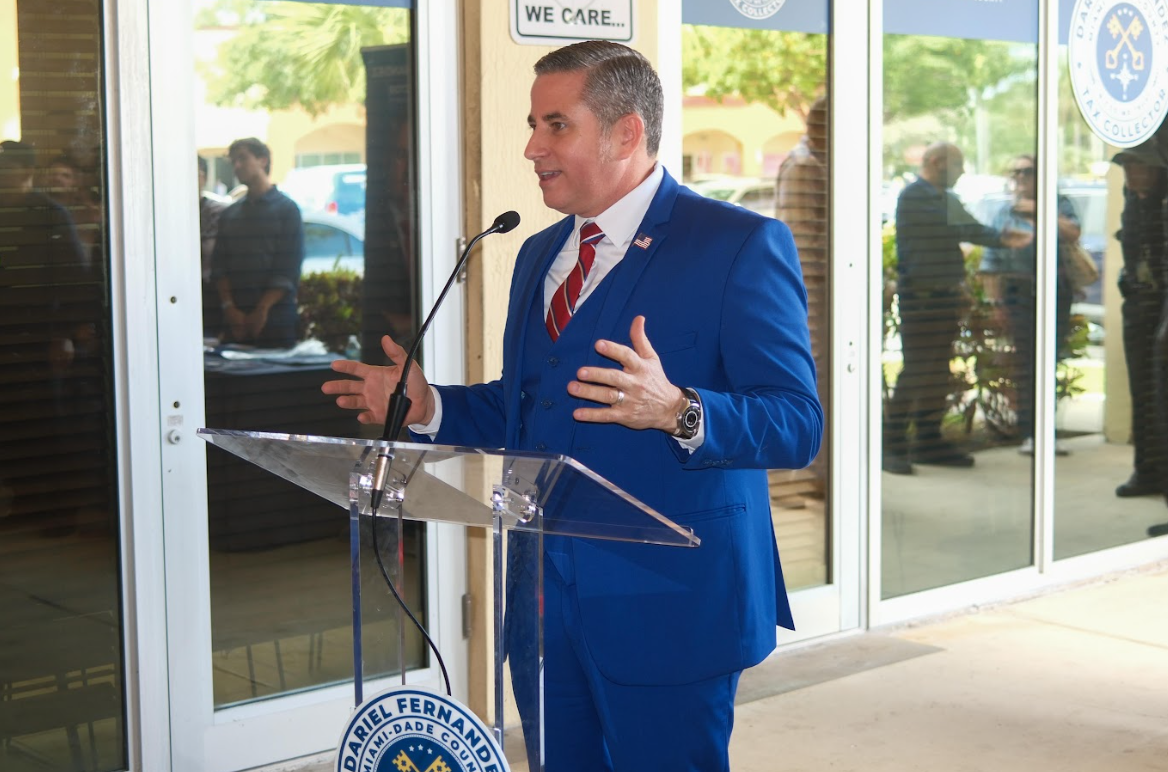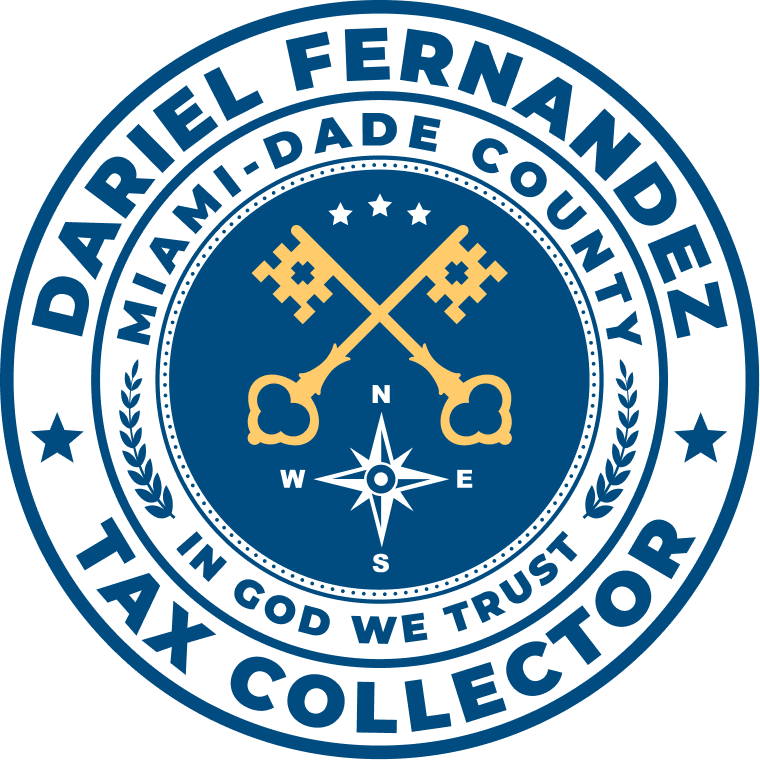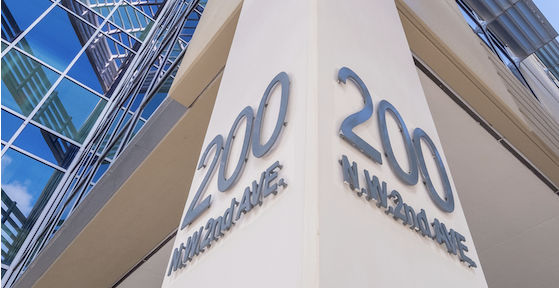Statement from Miami-Dade County Tax Collector Dariel Fernandez on Office Independence, Funding Model, and Service Expansion

Miami-Dade County Tax Collector Dariel Fernandez issued the following statement outlining how his office is funded, what makes it independent, and how it continues delivering results for residents and local governments without relying on the County.
“We are not a branch of County government. We are a constitutionally independent office at the local level,” said Fernandez. “That independence matters. It ensures we stay focused on service, not politics, and that every decision we make puts people first.”
The Tax Collector’s Office is funded through statutory service fees and a 2 percent commission authorized by Florida Statutes (Section 195.087) and the Florida Administrative Code. It receives no funding from the County’s general fund. Instead, the budget is submitted directly to the Florida Department of Revenue’s Property Tax Oversight (PTO) program for independent review.
As outlined in the PTO’s official Budget Planning Workbook, this structure ensures that “taxing authorities which set the millage rates do not have financial or budgetary influence over tax collectors who collect the taxes levied locally.”
This year, the office began a historic transition by taking over operations from state-run DMV offices throughout the County. Staffing is growing from 200 to more than 700 employees, dramatically expanding service capacity. While some have labeled this shift an unfunded mandate, Fernandez clarified:
“The State of Florida did not just assign us new responsibilities. It clearly defined how we are to fund them,” said Fernandez. “We operate using the fees we generate through services and the limited commissions we are authorized to retain from tax collections, as outlined in state law. We are a self-sustaining model that not only covers our costs but also distributes billions to local governments. Importantly, we do not have a surplus. Each year, we start at zero.”
Since voters approved constitutional officers in 2018, the County has known that the Tax Collector could retain the full 2 percent commission for its collection services. Still, Fernandez submitted a budget that returns more than 61 percent of that commission to the County and other taxing authorities. The Tax Collector uses service-based revenue, such as tag renewals, registrations, and licenses, is used first. While commission dollars are used to fill any remaining gap.
“The law allows us to retain 100 percent, but we prioritize efficiency,” he added.
To assist the County in addressing its shortfall, Fernandez worked closely with Miami-Dade County Commission Chairman Anthony Rodriguez to implement a one-time exception allowing the return to be phased in strategically and sooner than what is required by law.
In the first 200 days, the office has collected and distributed more than 9.6 billion dollars to the County, School Board, municipalities, and over 30 taxing authorities. These funds support essential services including police, fire, sanitation, parks, libraries, and infrastructure.
Fernandez also voluntarily waived the 2 percent commission on collections for municipalities and the Unincorporated Municipal Service Area (UMSA), returning nearly 40 million dollars directly to local governments.
Additionally, the office has strategically invested collected funds and already returned more than 15 million dollars in interest earnings to taxing authorities through quarterly distributions.
“Every dollar we manage belongs to the public, and we treat it that way,” said Fernandez. “We are not here to build bureaucracy. We are here to build trust and return value to Miami-Dade residents.”
To expand access, the office has opened full-service locations in:
Downtown Miami
Midway Crossings
Miami Central
North Dade Justice Center
Kendall
Florida City
Coral Gables (coming soon)
Miami Beach (coming soon)
Offices in Miami Gardens, Hialeah Gardens, and Northside are also planned.
The office deployed five self-service kiosks in Publix locations in Doral, Homestead, West Kendall, Miami Beach, and The Falls. These kiosks completed thousands of transactions in just three months.
For the first time, Saturday hours are now available, including a dedicated third Saturday each month for the neuro-divergent community at the Downtown office. A new virtual walk-in system has also significantly reduced wait times across all locations.
In Fiscal Year 2025 to 2026, the office projects distributing more than 10 billion dollars in public funds through collections, interest earnings, and strategic reinvestments.
“This is what government should look like: efficient, accountable, and built around the needs of the people,” said Fernandez. “We are not just collecting revenue. We are returning value, expanding access, and modernizing how public service gets done in Miami-Dade County.”

